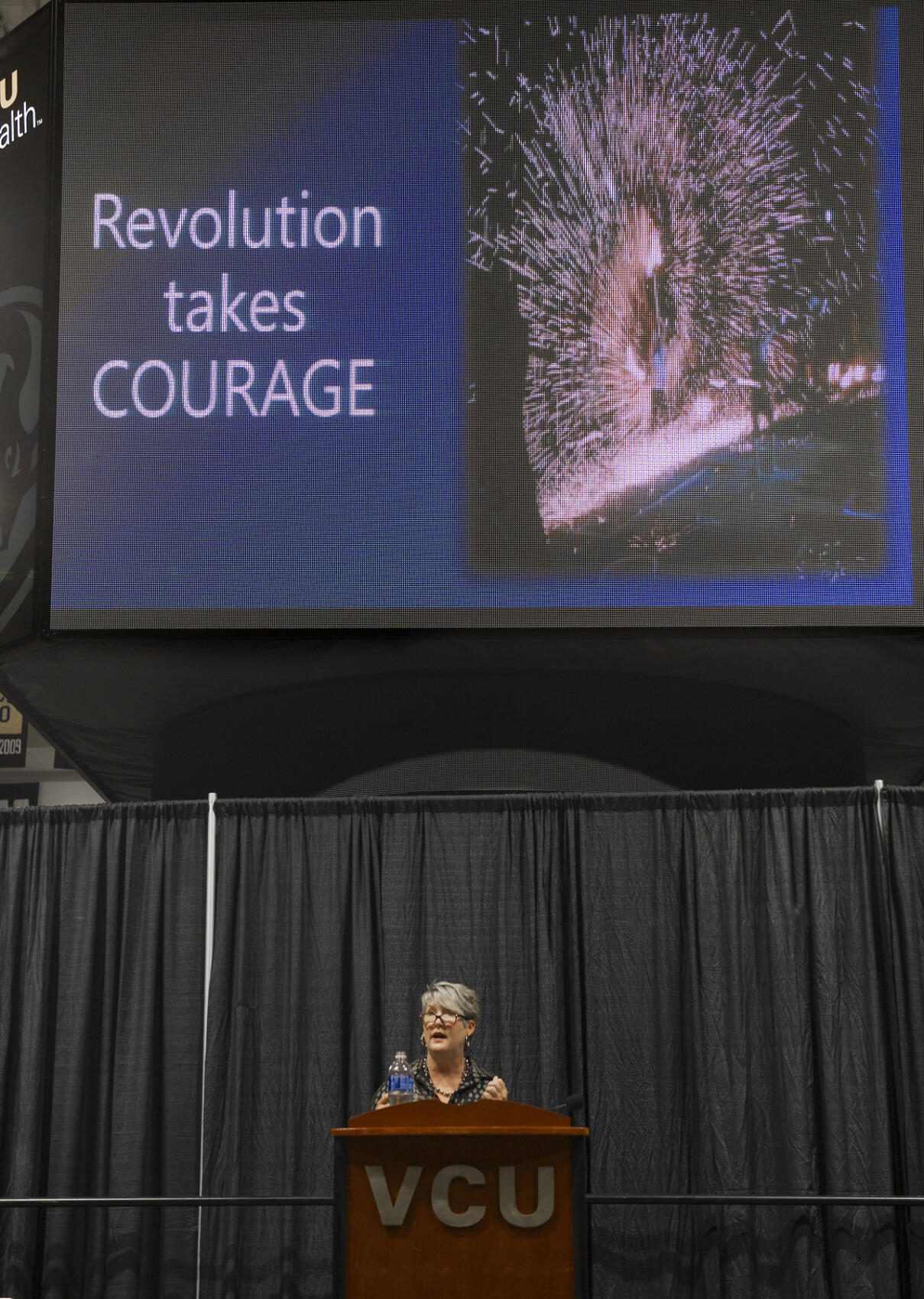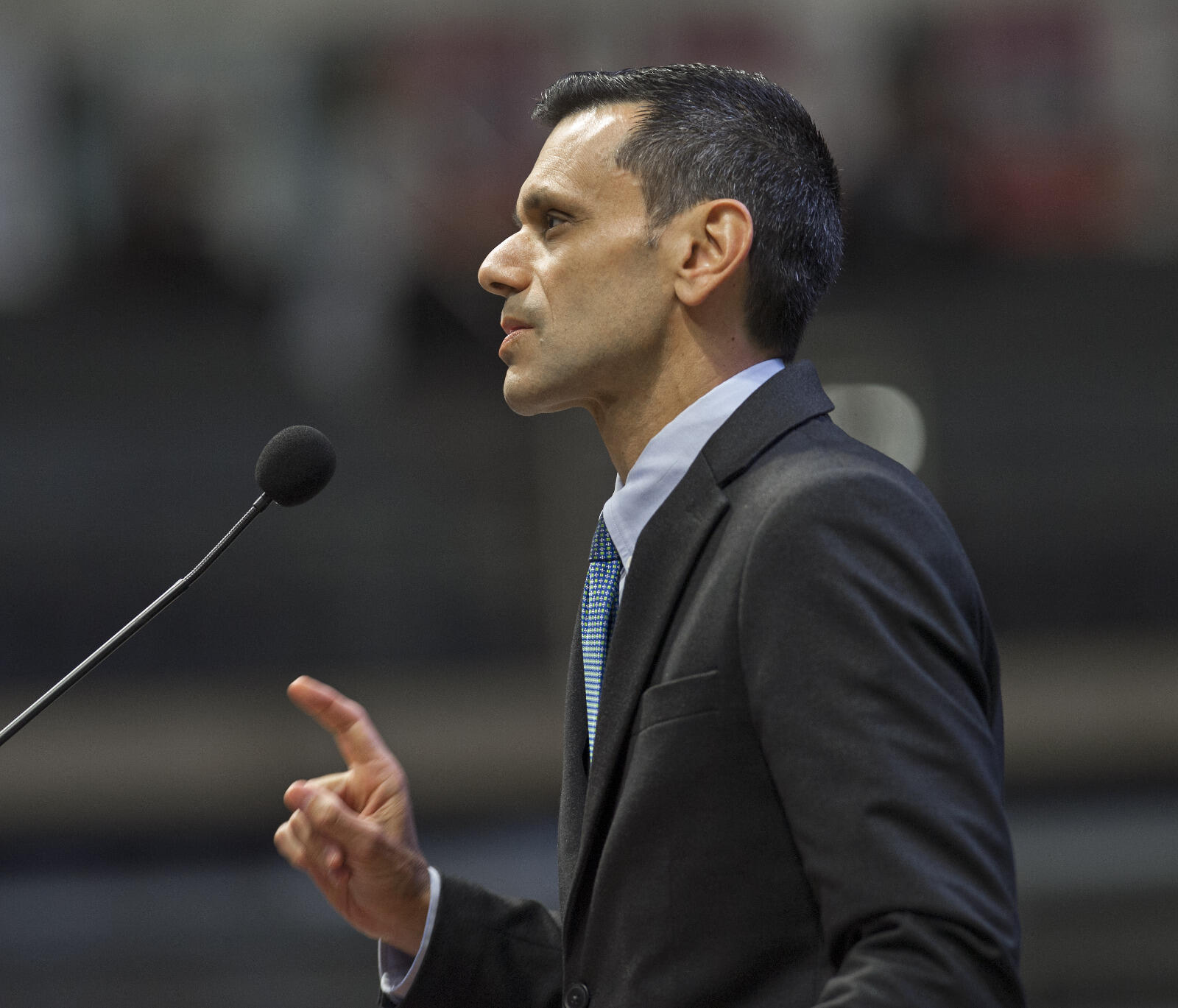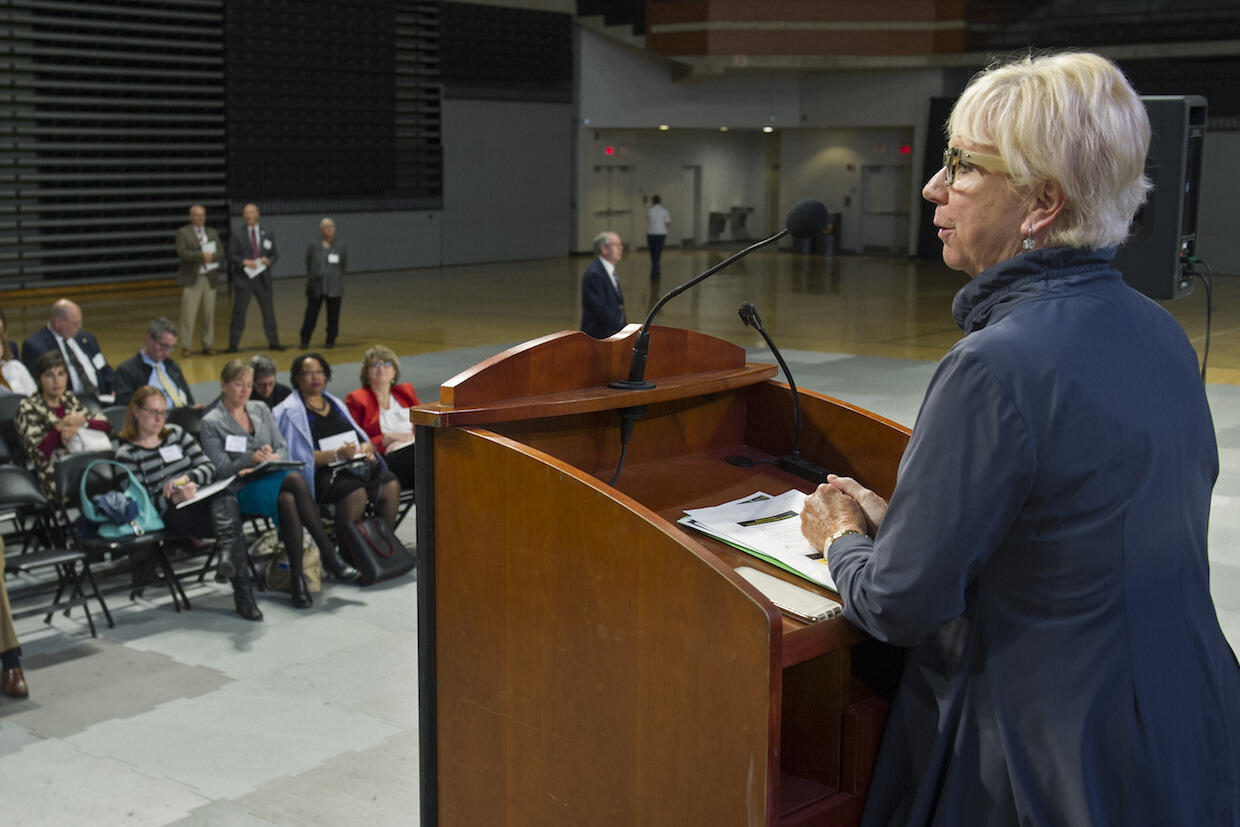Oct. 20, 2017
State Council of Higher Education for Virginia hosts Partnering for Progress conference at Siegel Center
Share this story
Allison M. Vaillancourt, Ph.D., vice president of business affairs and human resources at the University of Arizona, acknowledged the expertise of hundreds of fellow higher education leaders Thursday in the Stuart C. Siegel Center.

Photos by Kevin Morley, University Marketing.
Instead of lecturing them on the changing higher education landscape, Vaillancourt instead spoke about her experience in Arizona, where state funding declined 56 percent in the last decade.
“My job is to ask you to consider the peril and promise,” she said in a keynote speech at a conference hosted by the State Council of Higher Education for Virginia. “I have seen some very dark days, and I have a sense of what it takes to keep the doors open when the roof seems to be caving in.”
Her experience with declining state funding helped her understand the viewpoints of higher education critics, she said. Going slide by slide, Vaillancourt challenged their common criticisms about higher education, including misconceptions about student loan debt struggles, underemployment and tuition increases.
“We are treating asthma. We are reducing diabetes. We are studying asteroids. We are doing remarkable things,” she said. “What other industry can claim as many successes as higher education? We have to listen, and help [the public] to sort out what is fact and what is falsehood.”
Yet change is needed, Vaillancourt said.
“This is where I make you mad,” she warned amid a stream of big ideas, including whether colleges could aim for three-year bachelor’s degrees, abolish departments, pay student-athletes and tackle real-world problems instead of analyzing case studies.
“Ask yourself, do I have the patience to watch higher education crumble because of public anger and lack of public investment, or do I have the courage to create a better future? My money is on those of you who are willing to do something bold,” said Vaillancourt.
Virginia focus

Virginia’s network of colleges and universities plays a “crucial role” in the state’s success, said Victoria Harker, a member of the Virginia Business Higher Education Council and executive vice president and CFO of TEGNA Inc.
“Here in the commonwealth, our institutions are laser focused on creating efficiencies across the board, despite comparatively low spending and state support per student,” she said. Harker highlighted the Virtual Library of Virginia and the Commonwealth Graduate Engineering program as examples that serve students, faculty, staff and the public at minimal expense.
“In business, we call that having our aces in the right places,” she said.
Virginia Commonwealth University President Michael Rao, Ph.D., said that as stewards of public state resources, “more now than ever before we’ve really got to be focused, we’ve got to be efficient but we also have to be innovative.”
“If we keep our hearts focused on what brought us to public higher education — our mission — we will begin to take the leadership role that we need to shape that mission to match a public that’s changing very, very rapidly,” said Rao.
Bill Murray, Ph.D., a member of the SCHEV board and vice president of state and electric public policy at Dominion Energy, said Virginia’s higher education system spins gold from straw. Through efficient use of limited funding, schools make an impact on the commonwealth’s economic vitality.
Murray thanked VCU for providing space for the event.
“VCU is not just a driver of our economy, it’s not just a leading higher education institution, it’s not just a first-class health center, it’s also a convening place for the Richmond community,” Murray said. “For that we’re very grateful.”
Flash talks

Following Vaillancourt’s keynote, presenters worked through a series of rapid “Flash Talks” on topics including allergy-free dining, a textbook-free degree program and how trees reduce campus energy usage.
During a presentation on “flight plans for helicopter parents, partnering for success in today’s university,” VCU’s Daphne Rankin, Ph.D., associate vice provost for strategic enrollment management, discussed an online class created by the university specifically for parents. Topics include adapting to the empty-nest, campus safety, networking and writing successfully in college. Parents earn one college credit along the way.
“It is for parents of first-semester students here at VCU,” Rankin said. “We are live every Thursday night and it is called ‘beyond orientation’ because that’s exactly what we do — discuss issues in higher education and bring in experts from the VCU community.”
In addition to the rapid-fire slideshow presentations, dozens of poster presentations lined the concourse of the E.J. Wade Arena as another avenue for visitors to share information.
Subscribe for free to the VCU News email newsletter at http://newsletter.news.vcu.edu/ and receive a selection of stories, videos, photos, news clips and event listings in your inbox every Monday and Thursday during the academic year.
Subscribe to VCU News
Subscribe to VCU News at newsletter.vcu.edu and receive a selection of stories, videos, photos, news clips and event listings in your inbox.











